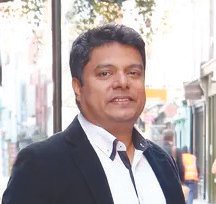
Samir Mardolker demonstrates a unique perspective on how to get AI to work harder and better
AI is only as good as the questions you ask. But most people still use it like a search engine, getting surface-level answers. My Expert Lens Framework changes that – by borrowing different professional perspectives, you can turn AI into a powerful thinking partner.
My Expert Lens Framework changes that – by borrowing different professional perspectives, you can turn AI into a powerful thinking partner.
This article puts the framework to the test. We take a simple prompt, apply expert lenses (Journalist, Detective, Philosopher, etc.), and compare the AI-generated responses. The results? More insightful, unexpected, and strategic answers.
Of course, not all prompts need this approach – AI can summarize reports, refine writing, or draft emails. But when the goal is to explore an idea, challenge assumptions, or gain deeper insights, the way you ask the question makes all the difference.
Why prompts matter more than ever
We have long heard, “Questions are more important than answers.” Today, it is truer than ever. AI doesn’t create new knowledge – it reorganizes what already exists. The real power lies in how you frame your question.
How to ask smarter prompts using my Expert Lens Framework
With AI at our fingertips, information isn’t scarce – context is. The same data, reframed differently, unlocks fresh insights.
A simple trick? Apply the Expert Lens Framework.Let’s take a basic prompt: – “How can I increase productivity?”
Now, let’s see how different expert perspectives elevate it:
1. The Journalist – Finding the Untold Story
– “What’s the most overlooked productivity technique successful people swear by?”
2. The Sculptor – Removing the Fluff
– “What’s the one habit that dramatically improves productivity?”
3. The Detective – Looking for Patterns
– “What do the most productive people do in the first 30 minutes of their workday?”
4. The Film Director – Creating a Vivid Scene
– “If a movie were made about the world’s most productive person, what would the opening scene look like?” 5. The Fortune Teller – Predicting the Future
– “What productivity techniques will be obsolete in five years, and what will replace them?”
6. The Philosopher – Challenging the Premise
– “Is maximizing productivity always good, or does it sometimes backfire?”
7. The Stand-Up Comedian – Using Humour to Reveal Truth
– “Why do we spend hours planning instead of doing? What’s the laziest way to be productive.”
Even AI Struggles to Ask the Best Prompts
I asked ChatGPT to generate the most interesting productivity-related questions. Here’s what it gave me:
– “What are the best strategies for increasing productivity?”
– “How can I improve my time management skills?”
– “What common mistakes do people make when trying to be productive?”
Decent – but predictable. Even AI defaults to generic, safe questions.
Now compare that to prompts using my Expert Lens Framework. Instead of surface-level answers, you get unexpected insights – like why strategic procrastination works or how early work routines set the day’s tone.
AI mirrors the creativity of the user.
The Final Takeaway
AI rewards better questions. If you ask vague, uninspired prompts, you get predictable answers.
But when you apply my Expert Lens Framework – approaching AI like a journalist, sculptor, detective, director, or comedian – you unlock richer, more insightful responses.
So the next time you type a prompt, use my Expert Lens Framework.





